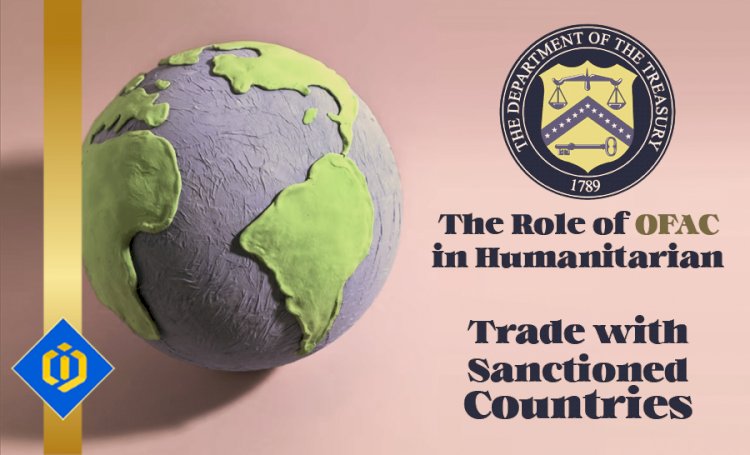Promoting Aid and Alleviating Suffering: Exploring OFAC's Role in Humanitarian Trade with Sanctioned Nations

The Office of Foreign Assets Control (OFAC) is a vital component of the U.S. Department of the Treasury, playing a critical role in enforcing economic and trade sanctions based on U.S. foreign policy objectives and national security interests. One of its significant responsibilities is overseeing and facilitating humanitarian trade with countries subjected to sanctions. This is of utmost importance to ensure that while sanctions are imposed to achieve strategic goals, they do not inadvertently harm the most vulnerable populations in these targeted nations.
Understanding OFAC:
OFAC serves as the administrative and enforcement arm for economic and trade sanctions, supporting specific U.S. foreign policy objectives. It targets foreign countries, regimes, terrorists, individuals involved in weapons proliferation, international narcotics traffickers, and other entities posing threats to U.S. national security or foreign policy interests.
Role of OFAC in Humanitarian Trade:
Licensing: OFAC issues licenses to authorize activities and transactions that would otherwise be prohibited, including those related to humanitarian purposes. General licenses allow for specific categories of transactions, while specific licenses grant permission on a case-by-case basis.
Advisories and Guidance: OFAC regularly releases advisories and guidance documents to inform the public and industries about the intricacies of sanctions. These advisories provide clarifications on the allowances for humanitarian-related transactions.
Compliance Programs: OFAC provides a compliance framework to assist businesses in understanding their obligations. This framework helps organizations ensure that their internal processes align with OFAC requirements, particularly when engaging in humanitarian transactions.
Staying Updated with OFAC:
Due to the dynamic nature of international relations and foreign policy, sanctions and related guidelines are subject to frequent updates. Therefore, businesses and individuals involved in humanitarian trade with sanctioned countries should regularly consult the official OFAC website and its publications to stay informed.
Conclusion:
The role of OFAC in overseeing and facilitating humanitarian trade highlights the delicate balance between achieving foreign policy objectives and safeguarding the well-being of vulnerable populations. In this complex realm of international policy, informed decision-making, timely guidance, and strict compliance are essential, and OFAC diligently provides these critical elements.
Author: Pooyan Ghamari, Swiss Economist & Visionary

 content-team
content-team 






















